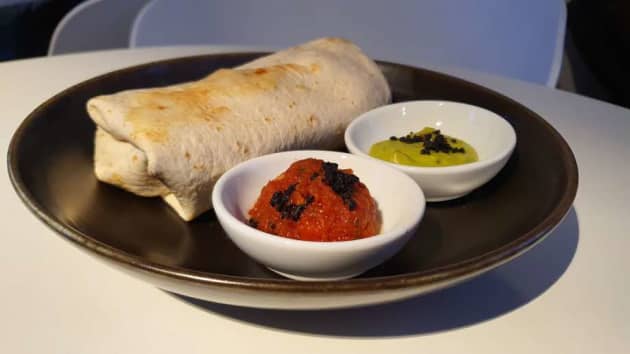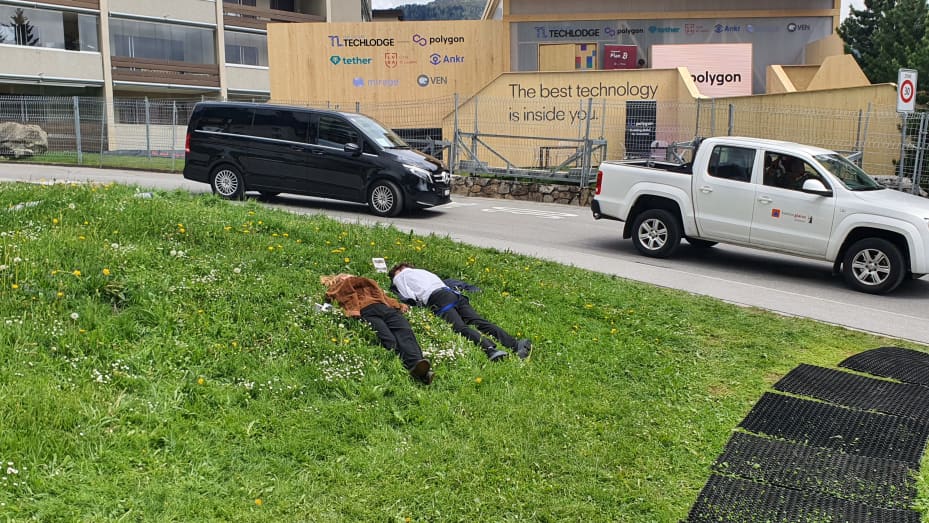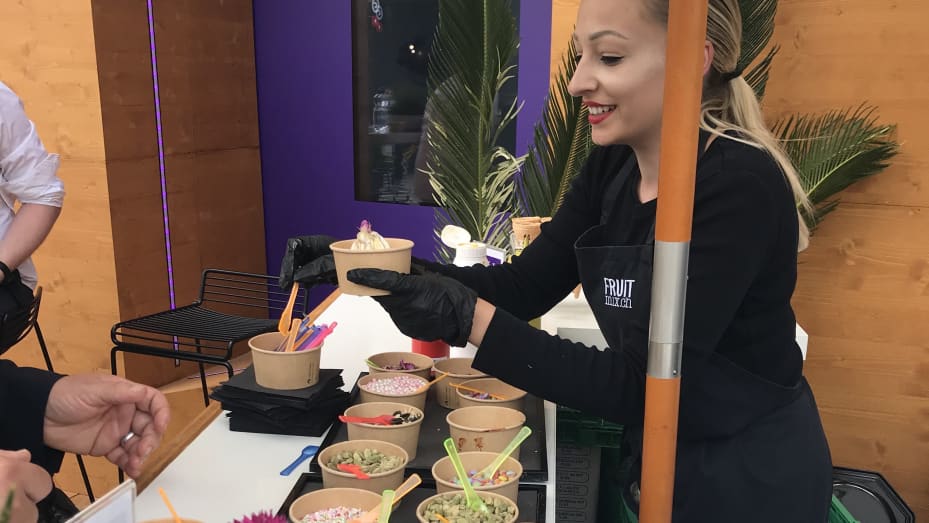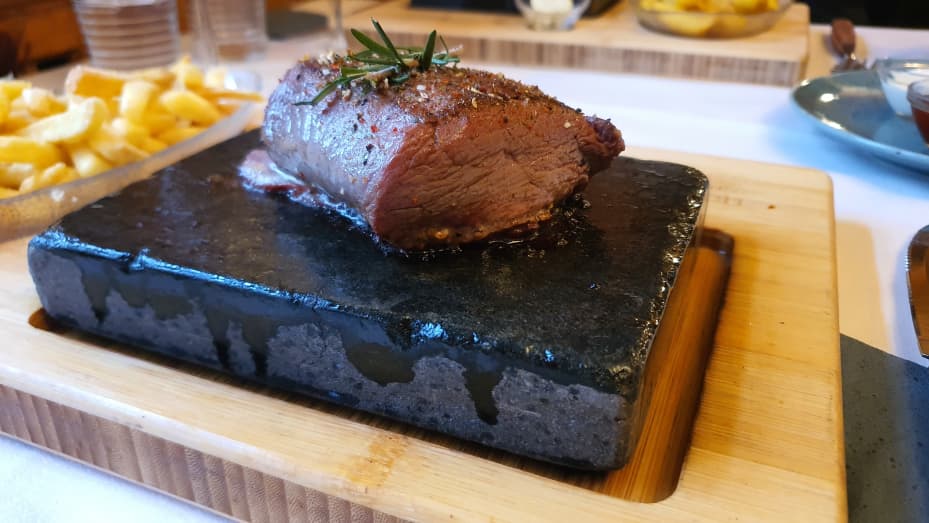Over $50 for a burrito? World’s elite splash the cash on snacks at Davos
CNBC – Hungry attendees at this year’s World Economic Forum may have found some of the food a little hard to stomach, with some eye-popping prices in some locations
All in all, it was a different kind of Davos experience this year, given the event was being held in May rather than January.
At a spring Davos, there was no fear of slipping over on ice or any issues getting one of the very few taxis or Ubers available in town.
This year’s event was a chance to go from meeting to meeting wearing sandals rather than snow boots, but attendees largely stuck to formal dress code … so there were no short suits in sight.

CNBC
DAVOS, Switzerland — Hungry attendees at this year’s World Economic Forum may have found some of the food a little hard to stomach, with some eye-popping prices in some locations.
Just a stone’s throw away from the main Davos Congress Center, the fancy Steigenberger Grandhotel Belvedere was charging punters 49 Swiss francs ($51) for a burrito on its “snacks” menu.
It was accompanied by a small bowl of guacamole and salsa. For comparison, a burrito in Taco Bell can cost as little as $2.
A portion of French fries was also on offer at the Belvedere for 21.50 Swiss francs ($22.41).
Back in 2015, CNBC found a hot dog on sale for $43 at the same hotel, which is admittedly a conference hotspot in a prime location on the main Davos strip.
This year’s prices are perhaps less surprising given the recent surge in inflation, but it does underscore just how expensive the World Economic Forum at the Alpine resort can be.
Swiss inflation hit 2.5% in April. And while that might not be close to the level of runaway prices in the U.S. or the EU, it was still a 14-year high for the central European nation.

Arjun Kharpal | CNBC
Spring Davos
All in all, it was a different kind of Davos experience this year, given the event was being held in May rather than January.
At the local grocery store cafe in Davos, next door to the main Congress Center, it was almost impossible to find an empty table outside.
The terrace was often heaving with people eating, smoking, having coffee or simply enjoying the sunshine before they headed to their meetings. The Davos crowd are not used to the heat of the Swiss springtime and made the most of it.
“It’s just so, so nice,” a passerby told CNBC as they walked down the main strip.
Another Davos attendee added: “I can’t get over how pleasant the weather is.”
The annual economic shindig — which brings together the world’s most powerful and richest — traditionally takes place when the mountains are covered in snow and participants wear snow boots and ski jackets wherever they go.
But because of the coronavirus pandemic, this year’s meeting was pushed back to late May and participants noted how much more practical it was this time around.
“Moving around, it’s more friendly — it is more user-friendly,” a businessman waiting by the cloakroom said. Elsewhere, CNBC caught sight of two waiters taking a nap on a grassy patch near their restaurant — much easier if there isn’t two feet of snow on the ground. There was also plenty of ice cream on sale.

Arjun Kharpal | CNBC
Sandals not snow boots
At a spring Davos, there’s no fear of slipping over on ice or any problems getting one of the few taxis or Ubers available in town — you simply walk everywhere, providing it isn’t raining. Wearing lighter clothing also means there’s no need to remove multiple layers when entering the Congress Center — you just walk in wearing your professional attire, saving a good few minutes on arrival.

Arjun Kharpal | CNBC
This year’s event was a chance to go from meeting to meeting wearing sandals rather than snow boots, but attendees largely stuck to formal dress code … so there were no short suits in sight.
One delegate said that a quieter Davos had allowed him to have more time for important meetings — but it’s not all good news.
“There’s just fewer people this year. Having the meeting in May clashes with G-7, G-20 meetings, NATO meetings. All politicians and business leaders have blocked the third week of January and it’s difficult to change that,” a CEO at one of Europe’s largest banks told CNBC.
Packed restaurants
Almost 2,500 participants were expected at this year’s WEF — down from the 3,000 in January 2020. And there was also a clear absence of big names, such as the leaders of the United States, China or India.
The classic [January] formula renders the meeting more special. [The spring edition] loses a bit of the flavor of the original recipe. The political cycle is different in January, you’re starting afresh. New pledges, new commitments — it just makes more sense [in January].
Alberto Alemanno, founding member of non-profit The Good Lobby, told CNBC at the main Congress Center.
Even with fewer people, most restaurants remain packed. Steakhouse Ochsen, which is famous for bringing punters slabs of meat on a hot stone, said that they were still as busy as usual.
“They come for the steak,” the waitress remarked.

Arjun Kharpal | CNBC
Every participant seems to be enjoying the benefits of a spring version of Davos, but the consensus is that it’s not going to last and in about six months we’re all going to be back in the mountains with our hefty ski jackets on.